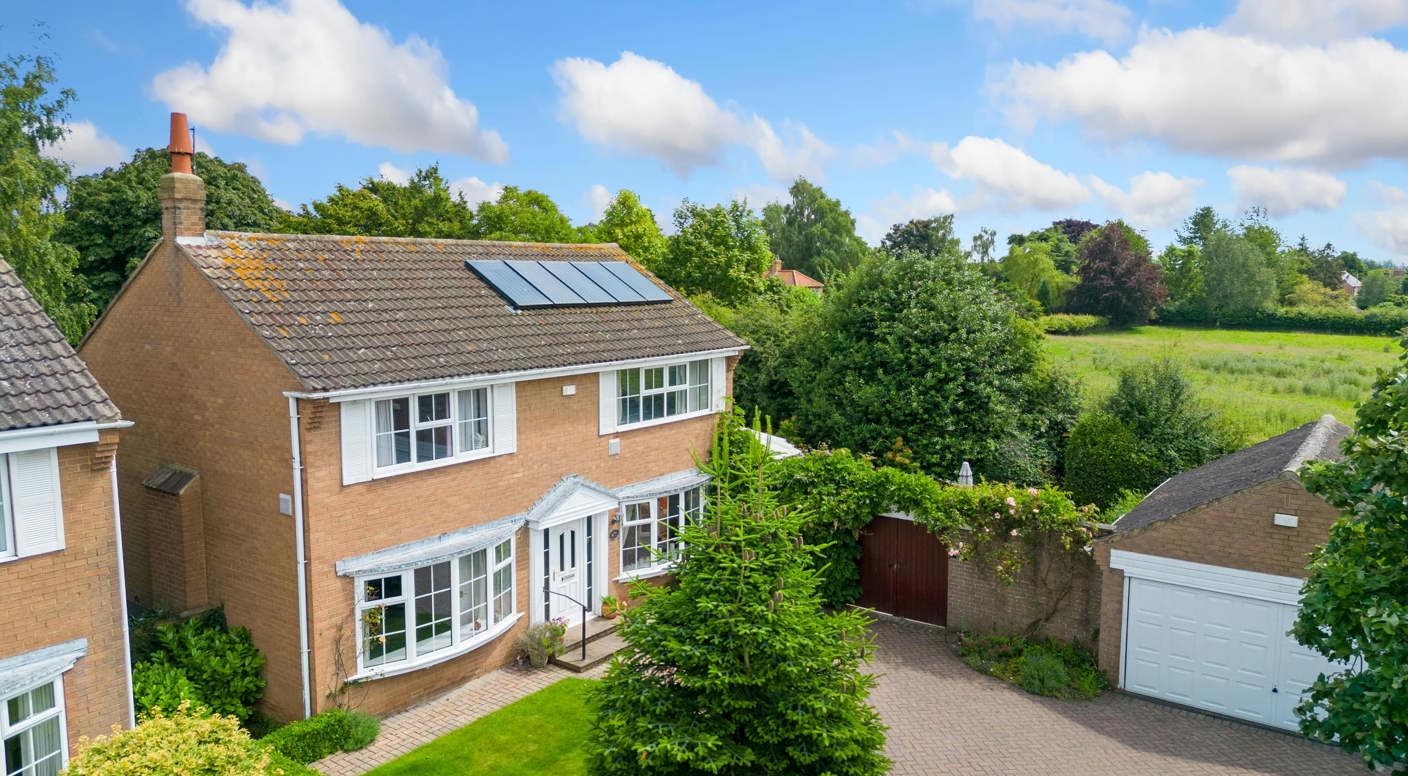An accurate property valuation you can trust
We'll help you to find the value of your property, so you can find a buyer or tenant as soon as possible.
Enter your details below to book a professional appraisal.
Viewing a property is exciting, but it is also one of the most important steps in the buying process. A viewing is your chance to go beyond glossy photos and marketing copy to determine whether the home truly suits your needs. Knowing what to look for helps you spot potential problems early, avoid unexpected costs, and determine if the property suits your lifestyle in the long term.

Overall first impressions
Take a moment when you first arrive to view the home as a buyer rather than a guest. Notice the street, parking situation and how well neighbouring properties are kept. First impressions often set the tone for how easy it will be to live in the area and how it might feel for future buyers if you decide to sell.
- Curb appeal: Is the exterior tidy and well maintained? Look for peeling paint, damaged guttering, or cracked render.
- Parking and access: Is there enough space for your cars or visitors? Check driveways, dropped kerbs and shared access arrangements.
- Neighbouring homes: Are gardens cared for? Does the street feel safe and well-kept?
Structure and condition of the building
Major structural issues can be expensive to fix and may affect your ability to get a mortgage. While only a surveyor can give a professional verdict, you can spot early warning signs:
- Cracks in walls: Hairline cracks are common, but wide or stepped cracks can indicate movement.
- Damp and mould: Look for discoloured patches, flaking paint, musty smells or condensation on windows.
- Roof condition: Missing tiles, sagging areas or moss build-up can signal future repairs.
- Gutters and drainage: Overflowing or broken guttering can lead to damp inside.
- Windows and doors: Check for rot, condensation between panes and how easily they open or close.
Heating, plumbing and electrics
Comfort and safety depend heavily on the home's core systems. Replacement or upgrade costs can add up quickly.
- Boiler age and service history: Ask when it was installed and last serviced. Modern, well-maintained systems are more efficient and safer.
- Radiators and pipework: Look for leaks or rust marks. Feel the radiators to see if they heat evenly.
- Water pressure: Run taps and showers to check flow. Low pressure can hint at plumbing issues.
- Electrics: Check the fuse box (modern consumer units are safer). Ask about the date of the last electrical inspection.
Energy efficiency and running costs
Understanding how affordable a home is to run matters as much as the purchase price. Energy costs can vary significantly between properties.
- Energy performance certificate (EPC): Check the rating and suggested improvements.
- Insulation: Ask about loft insulation, wall cavity filling and double or triple glazing.
- Heating type: Gas central heating is common; older electric or oil systems can be more expensive.
- Smart meters or thermostats: These can help track and reduce bills.
Layout and space
A home can look spacious in photos but feel very different in person. Think about how you actually live day to day.
- Room sizes: Take a tape measure if needed. Check where furniture would go.
- Storage: Look for built-in wardrobes, cupboards and loft or garage space.
- Natural light: Note window placement and how bright rooms feel at different times of day.
- Flow and privacy: Consider whether the layout suits your lifestyle - for example, open-plan vs. separate rooms.
Bathrooms and kitchens
These are expensive to replace and a big factor in daily comfort.
- Condition of fittings: Check taps, showers and toilets for leaks or stains.
- Water temperature: Run hot taps to test the system.
- Ventilation: Bathrooms and kitchens without proper ventilation can develop mould.
- Age of appliances: Built-in ovens, hobs and extractors can be costly to replace.
Noise and environment
A house can look perfect but feel very different once you notice the soundscape and surroundings.
- Traffic levels: Visit at different times of day to hear road noise.
- Neighbours: Listen for barking dogs, loud music or other persistent noise.
- Flight paths or rail lines: Check maps if unsure - background noise can affect quality of life and resale value.
- Future developments: Ask the agent about nearby building plans that could change the view or add traffic.
Garden and outdoor space
Outdoor areas can add huge value, but may need work or ongoing maintenance.
- Boundaries and fences: Make sure they're in good condition and check who is responsible for upkeep.
- Sunlight: Note how the garden faces and where the sun falls at key times.
- Drainage: Look for pooling water or boggy patches after rain.
- Size and maintenance: Be realistic about upkeep if it's large or landscaped.
Legal and paperwork checks
Some issues aren't visible but can create major headaches later. Ask early:
- Planning permissions and building regulations: Confirm any extensions or alterations were approved and signed off.
- Guarantees and warranties: Boiler, damp proofing, windows and roof works may be under guarantee.
- Leasehold or freehold details: If leasehold, ask about ground rent, service charges and lease length.
- Flood risk and insurance: Check with the agent or your solicitor if the area has any known issues.
Lifestyle fit
Finally, think beyond the bricks and mortar. Will this property work for you in the long term?
- Commute and transport: Test travel times at rush hour and check local public transport options.
- Schools and childcare: Research catchment areas and Ofsted ratings if relevant.
- Shops, parks and services: Walk the area to see what's nearby.
- Future flexibility: Consider whether you can extend or adapt if your needs change.
Why viewing with a professional matters
An experienced estate agent helps you focus on what matters most, provides context about the local market, and answers questions that online listings can't. At Farrell Heyworth, we guide buyers through every step - from spotting potential red flags to understanding neighbourhood trends - so you can make an informed decision.
Buying a home is one of the biggest financial moves you'll ever make. Going in with a clear checklist helps you stay objective, avoid surprises, and find a property that truly fits your life.
Related Posts
Is 2026 a Good Year to Invest in Student Property? Lancaster & Preston Investment Guide
National Student Housing Demand in 2026 According to the Higher Education Statistics Agency (HESA), 2.9 million students were enrolled in…
Buying Through a Limited Company in 2026: Is It Still Worth It?
Why Limited Company Buy-to-Let Became Popular The surge in limited company structures began after the phased removal of full mortgage…
UK Rental Market Outlook 2026: National Trends & North West Growth Analysis
Our latest blog post combines the latest data from the Rightmove Rental Trends Tracker, the ONS Private Rental Price Index,…



